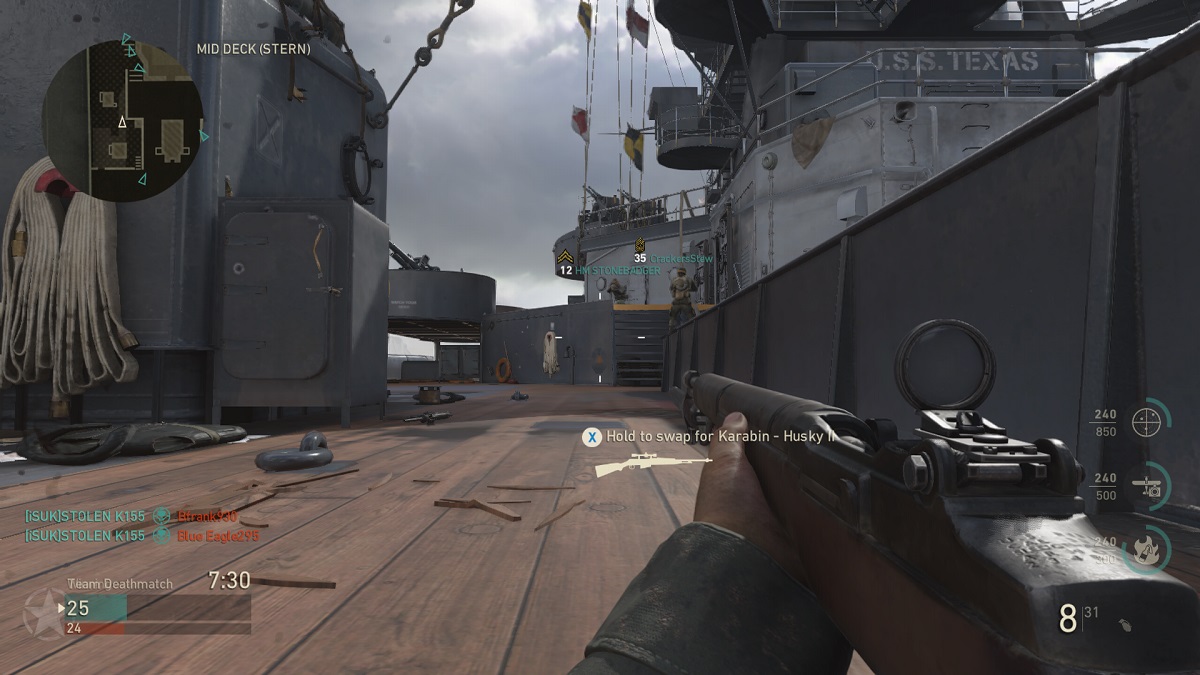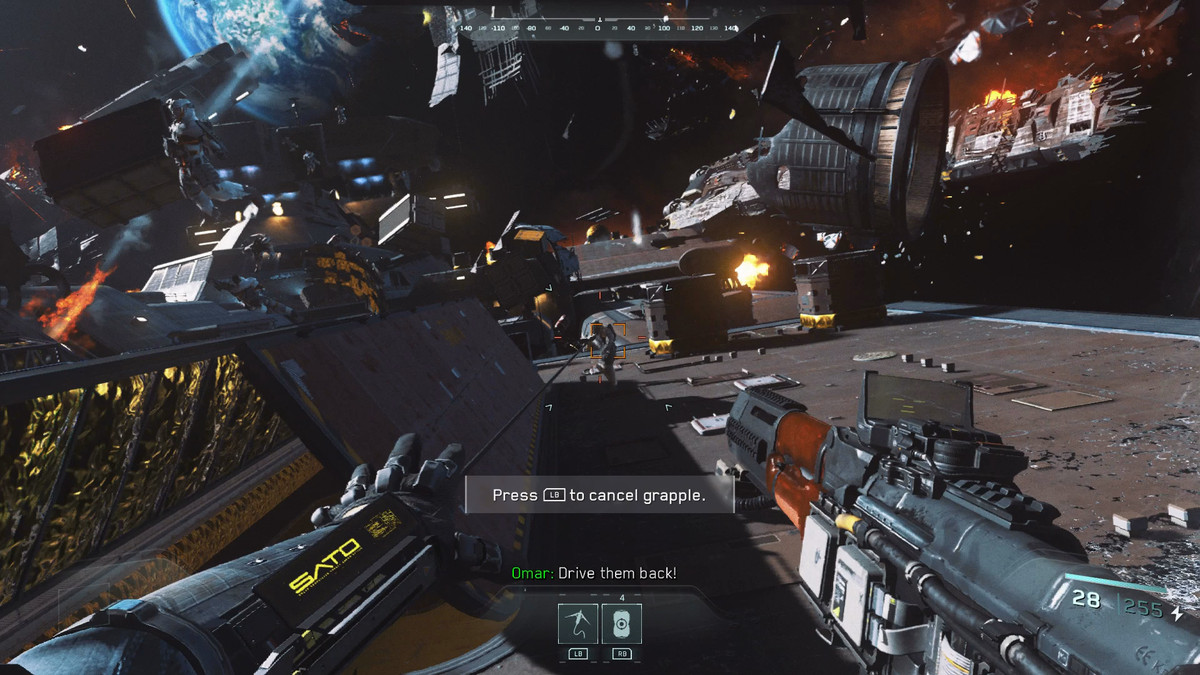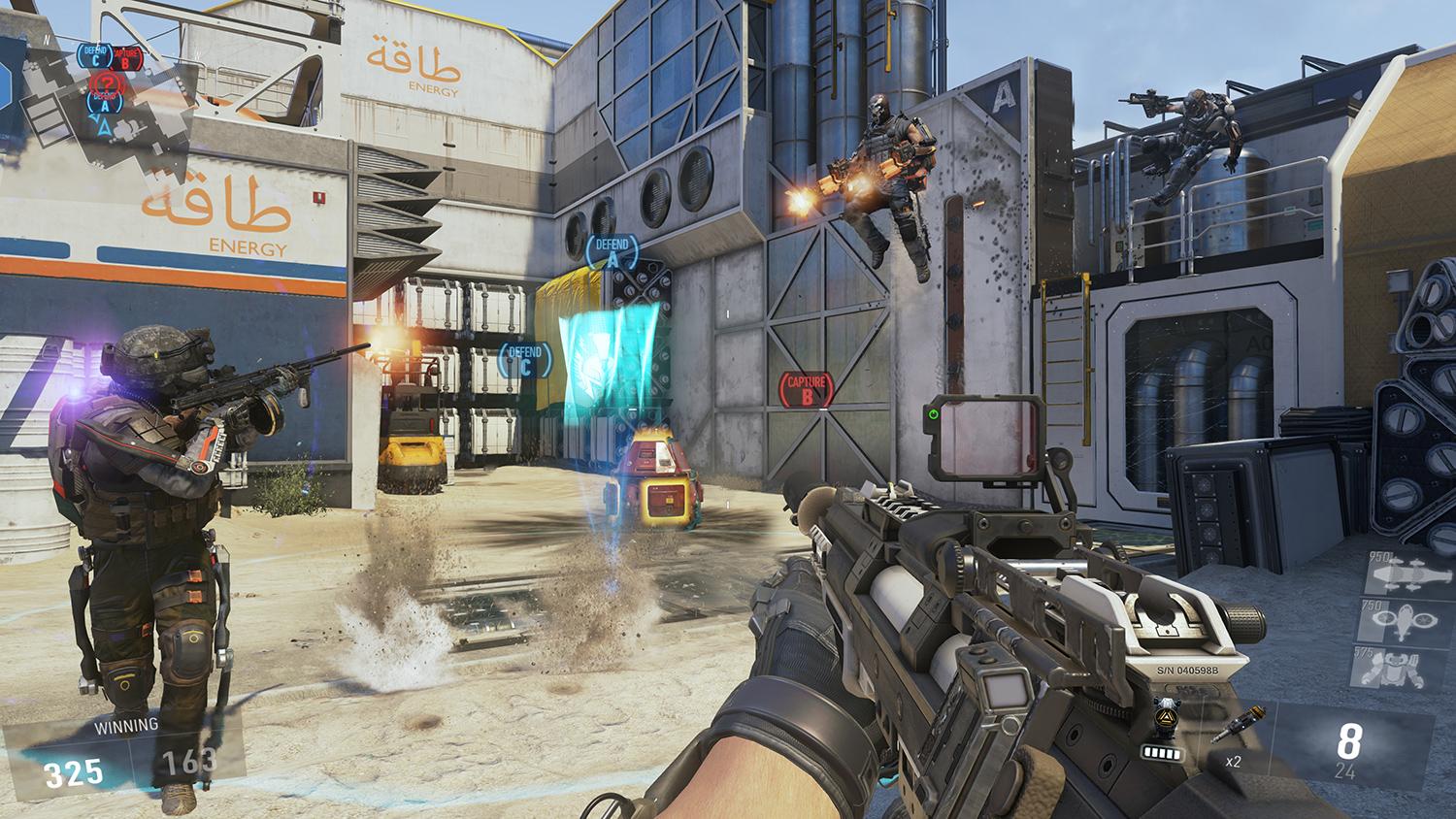
With 2017’s Call of Duty: WWII, it appeared that Activision has finally distilled the series down to its most essential components. The campaign was linear, but featured characters with an emotional arc, and its multiplayer returned to the straightforward combat that made games like Call of Duty 2 and Call of Duty 4: Modern Warfare so popular.
Instead of building on that success, Activision seems hell-bent on moving the series in the complete opposite direction. On April 17, Polygon reported that the next game in the series, Call of Duty: Black Ops 4, will drop its single-player campaign, with time constraints reportedly to blame for the decision.
The game will apparently focus on multiplayer, including a rumored take on Battle Royale, and its Zombies mode. Activision’s decision to erase what is, to a large percentage of players, an important part of the Call of Duty experience, suggests the publisher is firing from the hip.
- 1. Call of Duty: WW2 (2017)
- 2. Call of Duty: Infinite Warefare (2016)
- 3. Call of Duty: Black Ops III (2015)
- 4. Call of Duty: Advanced Warfare (2014)
Activision and its development teams feel like they have been throwing darts at a wall to find Call of Duty’s future for a generation. Until now, though – the decisions made were simply less consequential. In 2013’s Call of Duty: Ghosts, developer Infinity Ward tested an alien-focused mode called “Extinction,” a spinoff similar to the series’ “Zombies” mode and wave-based cooperative offerings.
Very few things from Ghosts survived — it’s widely considered a low point for the series — and Activision scraped Extinction. Video games are an iterative medium, and the decision to ditch the mode felt like overkill.
Activision and its dev teams feel like they have been throwing darts at a wall to find the next big
Call of Duty game.
It was disappointing, but hardly the end of the world. What’s far more frustrating is when Activision throws away what did work in its games, almost always in reaction to dwindling sales figures compared to previous years. Call of Duty: Advanced Warfare’s focus on acrobatic traversal and highly customizable multiplayer characters made it one of the series’ best, most innovative entries in years.
It showed real promise, with a campaign – Kevin Spacey aside – that exemplified what made the series so much fun. Despite that, sales figures weren’t setting the world on fire, and instead of iterating on the game’s ideas and marketing it in a different way, Activision put a bullet in the series before it even really began.
Call of Duty’s inability to cultivate an evolving identity seems to stem from the series’ annualized development. Despite its well-known development cycle — three teams rotate development so each one can spend three years on their game — each studio is unable to coordinate with its peers to iterate on series-wide ideas. As a result, every game takes wild swings at new ideas. Take 2015’s Black Ops III, for example, which tried, and largely failed, to innovate the series’ narrative structure by allowing players to complete levels in any order. The concept didn’t really work, as the story felt disjointed and impersonal, with the player-character not even having a name.
Good or bad, Activision clearly throws the baby out with the bathwater when things don’t go the way they’d hoped. There were no lessons to learn from Black Ops III game, it seems, other than, “It didn’t work.” It’s an approach that was likely developed, at least in part, after players complained about the homogenous nature of the Modern Warfare games during the last generation, but it’s completely antithetical to the idea of having a game “series.” Instead of “better,” we get “different,” with less and less of an argument for even putting the Call of Duty name on the box at all.
If the reports are true, Black Ops 4 will be taking the wildest swing of all by adding a battle royale mode while ditching the popular single-player campaign. Both decisions change the franchise’s fundamentals, and they together will turn Black Ops 4 into an entirely different game.
If the reports are true, Black Ops 4 will be taking the wildest swing of all by adding a battle royale mode and ditching single player.
The flow and feel of Call of Duty matches are almost the polar opposite of games like PlayerUnknown’s Battlegrounds — the series has built itself on an addicting gameplay loop of being eliminated and immediately reentering the battlefield for a chance to correct your mistakes. Instead of leading the way, as Infinity Ward did with Modern Warfare, the series risks turning into a Frankenstein’s Monster of other, better games’ ideas.
There are certainly areas where the Call of Duty series needs change, but in throwing out more and more of its signature ideas in favor of something completely different, the franchise can’t move forward. Perhaps we’ll be pleasantly surprised come October 12, but as it stands now, the deck seems stacked against them.






